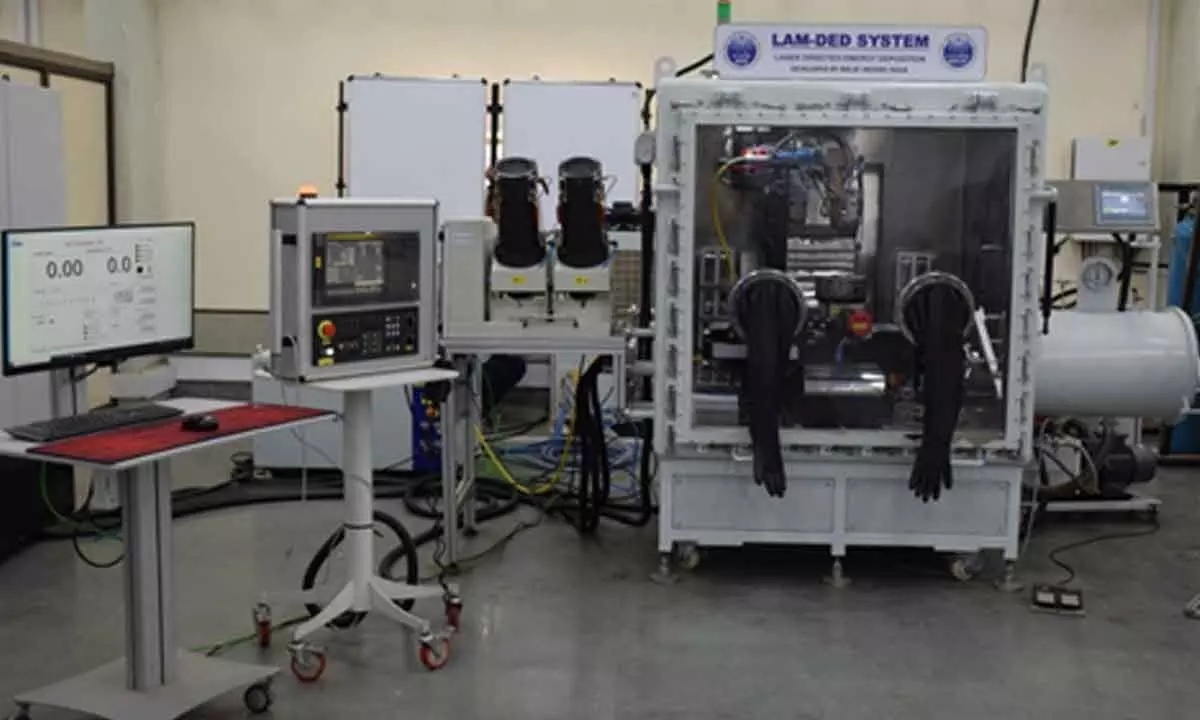RRCAT to conduct TIG welding masterclass for MSMEs in Indore
The one day event has been planned in a way that gives a lot of opportunities to the industry to discuss threadbare details of the nuances of the novel tech additions with subject matter experts
image for illustrative purpose

Raja Ramanna Centre for Advanced Technology (RRCAT), Indore, together with Atal Incubation Centre – π Hub will be conducting one day meeting of MSMEs with experts from research labs, academia and industry on Tungsten Inert Gas (TIG) welding in March.
TIG process has undergone a lot of inventive additions over eight decades to improve quality, productivity and service life which has resulted in cost savings of an order or two. The national research labs, top rung academia and big industries have been very keen to study and to add to these novel innovations but most of the micro, small and medium scale enterprises (MSMEs) are still deprived of the knowledge, skill and paraphernalia to embrace them and reap the benefits.
The one day event has been planned in a way that gives a lot of opportunities to the industry to discuss threadbare details of the nuances of the novel technological additions with the renowned subject matter experts.
Talking to Bizz Buzz, Abhay Kumar, Head of Design and Manufacturing Technology Division of RRCAT, said, “RRCAT has coined the idea to bridge the aforesaid gap through this meet.”
The MSMEs must be supported by sharing of technological bases, distinguished advantages and crisp deployment methodologies so that they become more competitive in market by making enormous savings in manufacturing cost through improved productivity, superior quality and better service life, he added.
Tungsten Inert Gas welding, popularly known as TIG welding, is the most prevalent joining process in manufacturing of pressure containing equipment like pressure vessels, storage tanks, process chambers, vacuum chambers and process piping.
The process was invented in 1941 primarily to join two reactive metals magnesium and aluminium but since then it has become a preferred choice for joining of stainless steels, aluminium alloys and titanium alloys also.
Dr Renu N Gupta, Head, Project Management and Welding, L&T, Mumbai, said, “The use of TIG welding can help reduce welding cost by 30-75 per cent in the welding of special grade materials like stainless steel, aluminium and titanium.”
If MSMEs, which are active on the space, adopt the new knowledge in the technology, then it can improve their productivity by 3-8 times. Though this is one time investment, but it can be recovered in due course of time, she added.
RRCAT is a premier research organisation of the country under Department of Atomic Energy (DAE), Government of India and is home to indigenous electron beam accelerator based national facilities like Indus-1, Indus-2, Infrared free electron laser and agricultural radiation processing unit. It has recognised this gap and assessed its impact on Make in India campaign.
Dr Supriyo Ganguly is a Professor in Welding and Additive Materials Science at renowned Cranfield University, UK and he is one of the speakers at the forthcoming meet. He said, “Since its invention over 80 years back, TIG welding had undergone continuous development and is currently recognised as a highly productive and clean welding process. This theme meeting will disseminate knowledge on the continuous development track of this process to micro, small and medium enterprises and explore its potential for a range of techniques for ensuring higher productivity and better quality for enhanced performance.”
Dr CP Paul, Head AIC π-Hub, has been instrumental in promotion of RRCAT technologies, knowhow and expertise. He said, “DAE has established four incubation centres including AIC π-Hub at RRCAT for fostering the technology translation and innovation ecosystem in deep technologies by bridging gaps among the stakeholders to march towards self-reliant India. RATIG-24 is one of such initiatives to promote the technology among the MSMEs and start-ups.”


